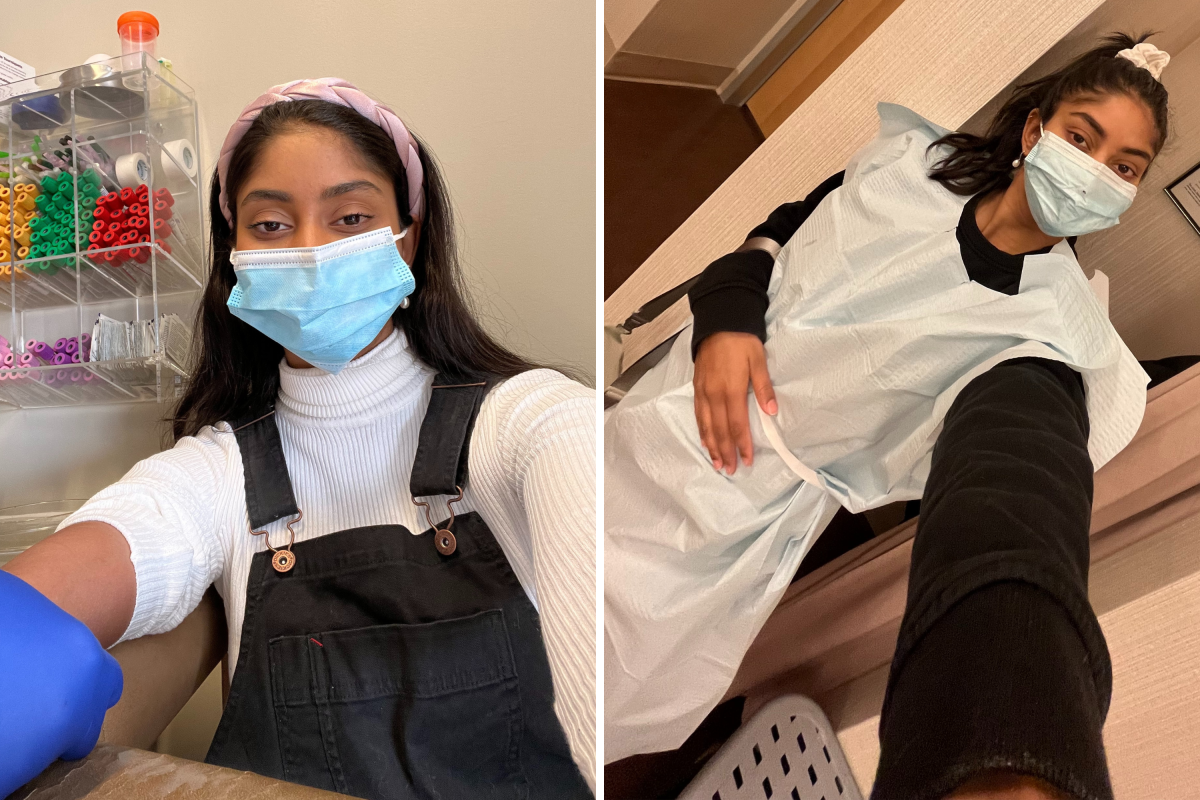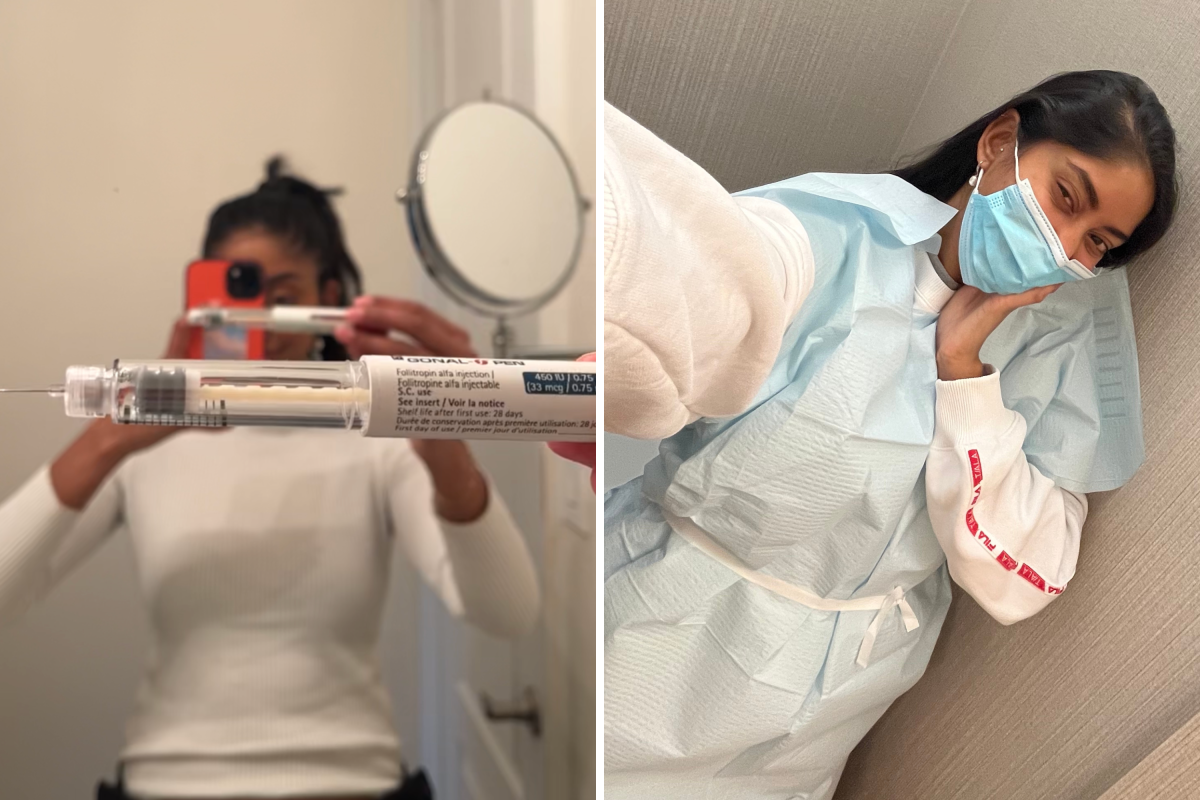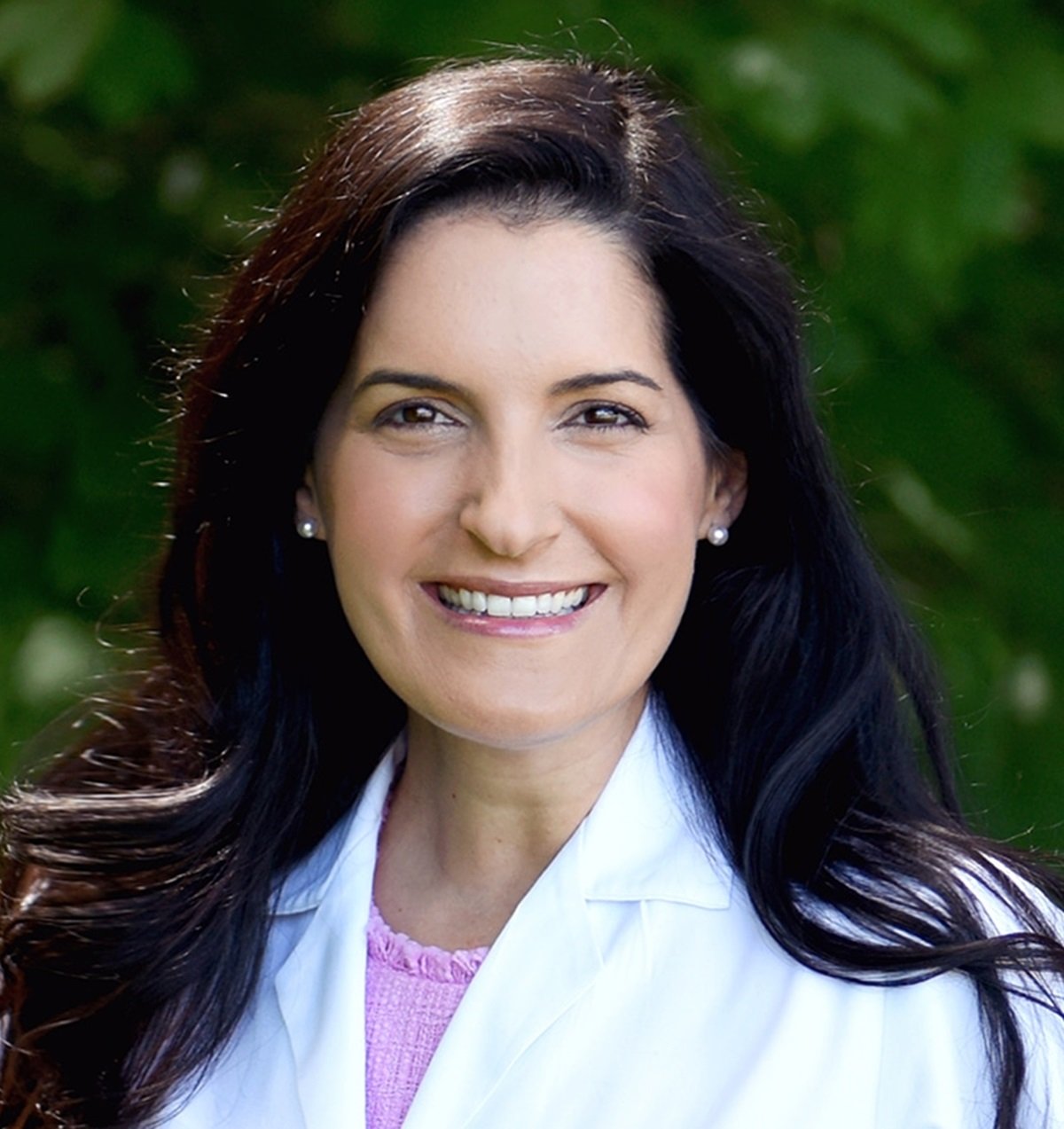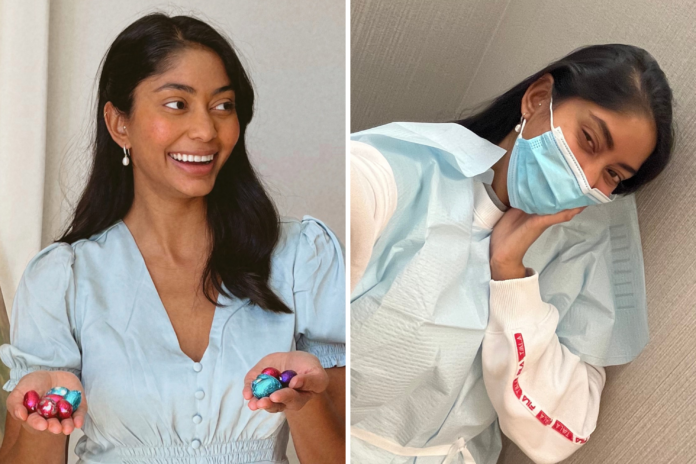After saving thousands, Shania Bhopa debated spending her money on a month-long trip to Europe.
Instead she chose to freeze her eggs as “kids could slow down my career,” the 25-year-old told Newsweek.
Last March, Bhopa decided to do something that challenges societal norms by investing her savings into freezing her eggs. This followed an eye-opening conversation about fertility with her sister, who is a doctor.
The Canadian told Newsweek that becoming a mom is one of her dreams but she is in no rush to conceive. Instead, she plans to focus on her Ph.D. and two businesses without worrying about her fertility.
Shania Bhopa/TikTok/@wellbyshania
The 25-year-old explained: “I did a cost-benefit analysis and it was a month in Europe or freeze my eggs.”
The procedure, plus medication and five years’ storage, cost $13,700 CAD ($10,145), and Bhopa has been transparent online about how she afforded it and explaining how much was covered by her insurance.
She spent $9,700 CAD ($7,179) of her own savings on the procedure, blood work, ultrasounds, physicians, nursing fees, anesthesia and storage for her eggs. Prior to her retrieval last March, she underwent 12 days of blood work and scans.
She told Newsweek the cost of the medication was $4,000 CAD ($2,962), which included hormone injections to stimulate the ovaries to produce multiple eggs in one menstrual cycle. But 80 percent was covered by her insurance, so she only had to pay $800 CAD ($592) of out of pocket. In total, she spent $10,500 CAD ($7,788) of her own money.
In January last year, Bhopa posted a video on TikTok outlining the costs, as she highlighted two other things she could have spent her savings on: a nose job and one month in Europe.
She added: “We all have things that we would save for [and] we all have things we would splurge on. For me, preserving my purpose and offering me as much time, energy and enthusiasm to go after the career of my dreams was worth saving for.”

Shania Bhopa/TikTok/@wellbyshania
Bhopa told Newsweek: “Women have a ticking clock in the back of their minds and that comes with the pressure to find the right person, settle down and have children.
“Now, I feel like a weight has been lifted off my shoulders as I can achieve my career goals knowing that I have a safety net of frozen 25-year-old eggs.
“I understand that this isn’t something everyone can do and I do feel privileged and lucky that I was able to.
“I wish this procedure was free for every single woman across the planet as I know it’s expensive but it’s an investment for me and my personal health.”
Bhopa told Newsweek that she was left with a comforting feeling after the procedure. In total, medics were able to collect 20 of her eggs.
Under the handle @wellbyshania, she openly speaks about her decision to focus on her career before starting a family, and uses her platform to educate other women about fertility treatment.
One video amassed 1.7 million views. It was captioned: “For my 25th birthday, I am freezing my eggs and we are starting the process. Here’s to my future self and her babies.”
The clip racked up 141,500 likes and plenty of comments ranging from questions to support.
One user said: “To everyone saying “at 25?” why not freeze your eggs when they’re at their prime? It’s a smart way to safeguard the future should she ever need.”
Another said: “This was a terrifying reality check.”
A third comment said: “You’re literally never too old to freeze your eggs. You’re in your prime in your early 20s.”
Being open about her journey hasn’t been easy and she told Newsweek that it was difficult to share her perspective.
She explained: “It isn’t the ‘norm’ for someone my age to freeze their eggs so a lot of my friends and colleagues didn’t understand.
“My story goes against the narrative that only single women who are in their 30s and scared they won’t find the right person freeze their eggs. Well, that’s not true.
“I have a long-term partner, 27, who is an emergency medicine resident, and his training will finish when he is 34.”

Shania Bhopa
She added: “Many people have no idea that eggs start to decline in your 30s as we aren’t taught this in school.
“I wanted to be a resource for any girl online so they understand that you can think ahead in your twenties and plan for the future. I feel empowered to be strategic about my life.”
Schoolkids are taught about the birds and the bees but many women reach adulthood without knowing the ins and outs of their fertility. According to a 2019 poll by The Harris Poll on behalf of the American Osteopathic Association, 39 percent of American women aged 35 or older who were unsuccessful in becoming pregnant would have tried again sooner if they had known more about the age-related decline in fertility.

Provided
Dr. Anate Brauer, an obstetrician gynecologist, spoke to Newsweek about how egg viability decreases with age.
“Egg quality is directly linked to genetics of the eggs which is directly linked to age. Between 30 to 34-years-old, 40-50 percent of eggs are genetically abnormal. This percentage increases with age,” the reproductive endocrinologist at fertility center RMA of New York said.
“Since the genetics of frozen eggs cannot be assessed until they are made into embryos, we have to have enough eggs in the freezer to afford a really good chance of making a baby with those eggs,” she said. “At 30-34, the ideal number of mature eggs in the freezer is 20.”
This oversight in fertility knowledge among women can lead to significant challenges for those who postpone childbearing.
Reflecting on her decision, Bhopa told Newsweek: “I know that kids could slow down my career and I love to work. I own a non-profit organization, have written a book.”
She hopes to start a family around 35-years-old, and ideally wants two children. But unsurprisingly, dependents are expensive.
According to Statistics Canada data, middle-income families with two parents and two children spent an average of $293,000 on a child from birth to 17 years of age. The total expenditure for higher-income families is $403,910 per child.
Bhopa explained: “I am working hard now to set my kids up for success in the future.
“Ideally, I would like to be a CEO of a couple of companies in the future and then step back to fully engage with my kids.
“Also I want to be able to afford to have kids and everything they need when I have them for them to live a full life, even if I am a working mom.”
If you have a personal dilemma, let us know via [email protected]. We can ask experts for advice on relationships, family, friends, money and work and your story could be featured on Newsweek’s “What Should I Do? section.
Uncommon Knowledge
Newsweek is committed to challenging conventional wisdom and finding connections in the search for common ground.
Newsweek is committed to challenging conventional wisdom and finding connections in the search for common ground.


